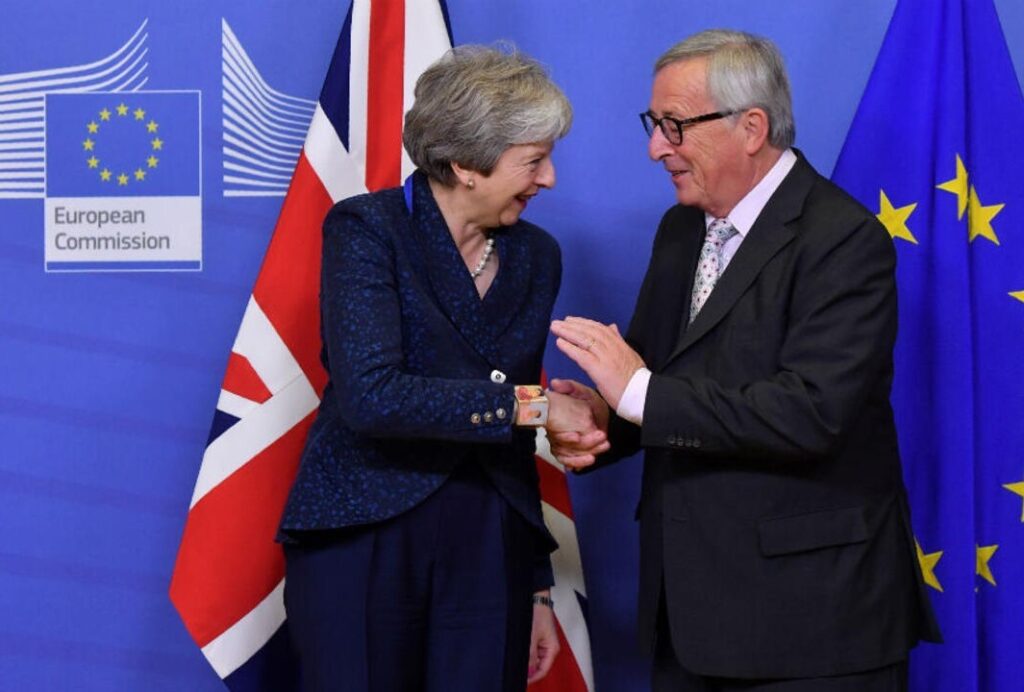EU Youth Mobility Scheme:
EU Youth Mobility Scheme: What is it and why should it matter to young people?
The United Kingdom’s withdrawal from the European Union, commonly referred to as ‘Brexit’, was completed in January 2020. It changed the relationship between the EU and the UK significantly, including the removal of the right to freedom of movement. This had allowed Brits to live, work and study in any EU country, with Europeans free to do the same in the UK. Nearly five years since Brexit’s finalisation, we examine its impact on EU-UK youth mobility and why the issue is making headlines once again.
Explainer
What is ‘freedom of movement’?
Freedom of movement is a ‘fundamental right’ for all EU citizens and is one of the bloc’s most recognisable policies. It allows EU citizens to freely move between EU countries for work or study, without the need for a visa.
Which age group made most use of freedom of movement?
Although almost 10 million EU citizens were recorded as living in an EU country other than their country of citizenship in 2022, freedom of movement is often best remembered in the UK for its take-up by young people. Over 180,000 British citizens aged 29 and under were living in Europe in 2011, while the EU’s Erasmus student exchange programme allowed British university students to spend a semester or more studying in the EU. 30-49 year olds were, however, the largest age group of Brits living in Europe in 2011.
What is the Erasmus programme?
Named after the 16th century Dutch scholar, the Erasmus programme supports youth mobility for students in the EU. It has also been known as Erasmus+ since 2014, which includes all of the EU’s educational mobility schemes. The UK participated in the scheme for the final time in 2022. Over 110,000 students from British universities took part in the programme between 2013 and 2022, with UK universities accepting almost 30,000 EU students in the 2017-18 academic year.
Why is EU-UK youth mobility in the news again?
The completion of Brexit in 2020 confirmed the end of the UK’s participation in freedom of movement and student mobility schemes like Erasmus, despite former Prime Minister Boris Johnson having stated that there was “no threat to the Erasmus scheme”. In April, the European Commission proposed a new youth mobility deal between the EU and the UK. While this was rejected by then-Prime Minister Rishi Sunak, the issue has resurfaced since the Labour Party’s victory in the 2024 General Election. Keir Starmer’s government has at times ‘ruled out’ negotiations over such a scheme, but speculation persists.
Interactive Timeline

Announcing the end of Erasmus and the introduction of its replacement Turing programme in December 2020, Prime Minister Boris Johnson lamented the Erasmus scheme’s apparent drain on UK finances. Here are some figures from a 2023 Universities UK report for the 2018-2022 period.

2020-21
2021-22
The number of EU students in the UK peaked in 2020-21 at 148,115, before reaching a ten-year low (115,800) in 2021-22 after the implementation of Brexit regulations.
2017-18
2021-22
The number of students from UK universities studying abroad has decreased by almost 50% between 2017 and 2022.
The second graph, ‘UK students studying abroad, 2017-22’, includes data for UK students studying outside the European Union. It is assumed that this dataset is still representative of UK students studying in Europe. According to Universities UK, 12 of the 20 most popular destinations for UK students studying abroad in 2021-22 were European countries.
As ever, Johnson’s claims are questionable – particularly given the continued, significant contribution of non-EU international students to the British economy, which far eclipses any slight shortfall from participating in Erasmus. In the same press conference, the former Prime Minister also described the high number of EU students who had spent semesters at UK universities through Erasmus as a “wonderful thing”. So wonderful, indeed, that it was not requested to be included in the UK’s Brexit deal.
But what were the numbers for youth mobility between the EU and the UK? How many Europeans studied in the UK through Erasmus? Did the 2016 Brexit vote have an impact on student exchanges?
This data shows that EU students were at first unperturbed by the UK’s 2016 vote to leave the European Union. In fact, their desire to study in the UK increased steadily year on year, despite a tide of anti-European media coverage and the unclear circumstances faced by Europeans residing in the UK post-2016. As expected, however, the breaking point was the completion of Brexit in January 2020. It brought into effect the long-speculated changes to the UK’s laws and regulations, including the end of funding for Erasmus exchanges. Its impact on the number of EU students studying in the UK during the 2021-22 academic year is striking with the UK losing over 30,000 EU students, although some hangover from the COVID-19 pandemic may also have contributed.
And what of British students studying abroad?
With little encouragement to study abroad, it should come as no surprise that fewer and fewer UK students are spending time at foreign universities. While some Erasmus funding continued until 2022, this data supports the younger generation’s disenchantment with the end of Erasmus and freedom of movement. At least 12,000 more students spent semesters abroad in 2021-22 following the pandemic, but the latest total remains far off the c50,000 students studying abroad between 2017 and 2019 – when Erasmus was still available to all UK students. Post-Brexit agreements with the governments of Australia, New Zealand and others have largely ignored incentivising international study for UK students, further highlighting the gap left by Erasmus.
So, who would benefit from a new EU-UK youth mobility deal?

Young people
It is no secret that young Brits are broadly more cautious on living abroad than our European counterparts, even while the UK was a member of the EU. But this is not to say that the government should ignore the possibility of a youth mobility scheme. Rather, it must again provide young people with the support and tools to study abroad. Its benefits are obvious, from language learning and cultural awareness to employability and access to new networks of friends. In other European countries, the right for young people to freely study and work abroad is taken as a given. If a ‘European identity’ is still to be achieved, which shapes a forward-thinking, tolerant future, Britain must first allow its young people to be part of it.
Universities, organisations and workplaces
With freedom of movement, the opportunities for young people to contribute in a meaningful way to societies abroad are endless and extend far beyond simply having a good time. Whether working on important research at some of Europe’s best universities or teaching English through the British Council, a youth mobility programme would again allow the UK’s young people to make a difference to communities abroad.
The UK economy
As already outlined, there is no significant loss, if any, to the UK Exchequer from a youth mobility scheme. Re-opening Britain’s biggest cities to vast numbers of European students, eager to study in the UK, is just one step towards alleviating the current pressure on the UK economy. Bringing new skills to the UK workforce, European students must again be viewed as an important investment.
Use the interactive map to read comments and ideas from past and present participants in EU-UK youth mobility schemes.
Youth mobility is hardly a controversial issue for the electorate. YouGov polling has indicated that 68% of the British public lean towards supporting the introduction of a new scheme. Its cultural and social value clearly cannot be underestimated, and should go hand in hand with greater interest in language learning. Despite the EU having expressed strong interest in a deal being struck, it remains to be seen if the new Labour government will change their position on EU-UK youth mobility.
Hover over each name to read full/further comments.

Anna

Zoe

Nathan

Paul

Raj

Emma
By 202022277



